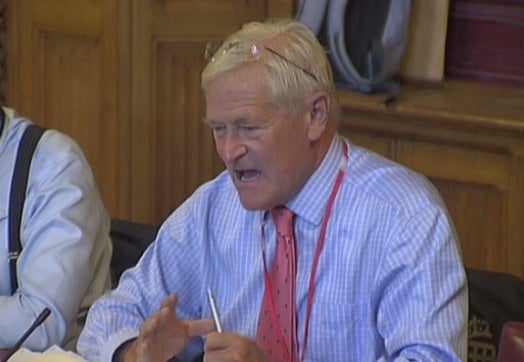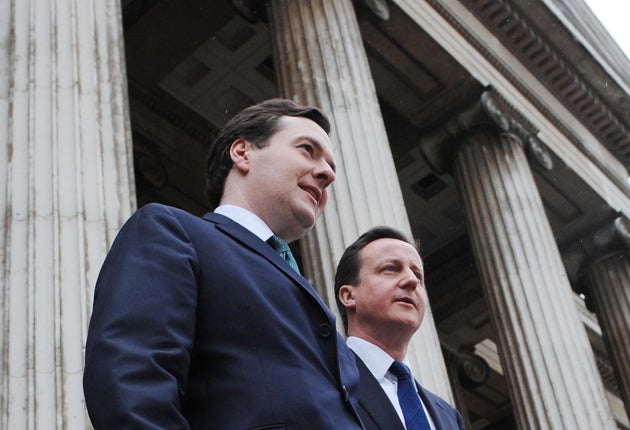The Conservatives’ argument that spending cuts need to be made to reduce government debt is a “smokescreen” for their real mission to shrink the size of the state, the former head of the civil service has said.
Lord Turnbull, who also served as permanent secretary at the Treasury and principal private secretary to Margaret Thatcher, accused George Osborne at a meeting in Parliament of not being straight with the public over cuts.
“The idea that this debt is impoverishing people is I think an economic fallacy,” he told the Chancellor.
“I think what you’re doing, actually that you want a smaller state. There are good arguments for that, and some people don’t agree with that – but you don’t tell people that’s what you’re doing.
“What you tell them is this story about impoverishment of debt, which I think is a smokescreen. I think the whole idea of the urgency and the extent of reducing debt, I just can’t see the justification of it.”

The peer, who sits as a crossbencher in the House of Lords, serves on the Audit Committee, the Economic Affairs Committee, and was a member of the Chancellor’s 2012-13 Banking Standards Commission.
Lord Turnbull, who served as head of the civil service and cabinet secretary between 2002 and 2005, said the Government’s insistence on reducing debt was strange because of the benign nature of public debt.
“Why is it so wrong to borrow if you are creating assets at the same time – why are you not looking at the total balance sheet?” he told the Chancellor.
“When you talk about debt, you talk about it as if you were impoverishing the future. The majority of the UK public debt is owned by UK citizens who have an asset. They own the gilt – they pay taxes to you, certainly, but then they get the asset in return.”
He said he would be supportive of spending reductions where a country’s debt to GDP ratio was falling but that this had already been achieved.
The Chancellor replied: “We just disagree.” He said reducing public debt would allow the UK to better weather a future financial crisis.
The Conservative manifesto commits to total cuts of public spending in real terms by 1 per cent a year by 2016-17 and 2017-18.
The vast majority of these reductions will be directed at unprotected social security spending, according to the Institute for Fiscal Studies.
“Meeting these spending plans will be anything but easy,” the institute said in an observational note published in June.

Join our commenting forum
Join thought-provoking conversations, follow other Independent readers and see their replies
Comments